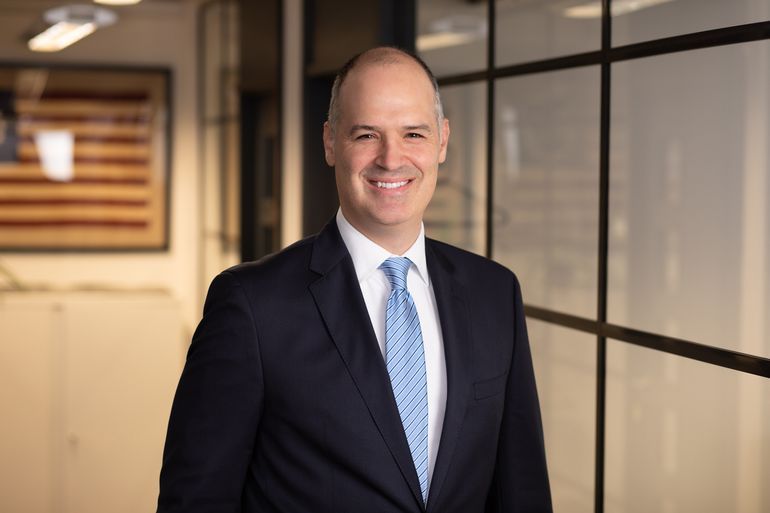
On September 15, 2022, Deputy Attorney General of the Department of Justice (DOJ) Lisa Monaco announced pivotal new guidance about the DOJ’s corporate criminal enforcement efforts. Her speech, accompanied by a more detailed memo sent to federal prosecutors on the same day, provides valuable clarifications and takeaways for companies of all industries, sizes, and maturities. In this client alert, we highlight what companies and their employees need to know about the DOJ’s heightened emphasis on corporate criminal enforcement.
The new guidance is based on the recommendations of the Corporate Crime Advisory Group, which was established in October 2021 to review the DOJ’s corporate enforcement efforts. At that time, Deputy AG Monaco announced that the DOJ would start prosecuting corporate crime with renewed vigor. In particular, she highlighted three significant changes to the DOJ’s policies on corporate criminal enforcement going forward:
- First, for a company under investigation to get credit for cooperating, it will be expected to disclose all relevant facts relating to culpable individuals.
- Second, when the DOJ considers how to resolve an enforcement action against a company, it will take into account all of the company’s prior misconduct.
- Third, the DOJ will consider on a case-by-case basis whether to require an independent compliance monitor as part of a corporate criminal resolution, discarding its prior presumption against imposing such monitors.
The guidance released last week clarifies and builds on these principles of corporate criminal enforcement.
Priority on Individual Accountability
In announcing the DOJ’s latest policy guidance, Deputy AG Monaco reiterated that the DOJ’s top priority is prosecuting individuals who commit and profit from corporate crime. Although these changes are not a dramatic shift in DOJ policy, they illustrate that the DOJ’s continued focus on individuals will affect how the DOJ assesses companies’ internal investigations. This priority is reflected in several new policies announced by Deputy AG Monaco.
- Expedited prosecution of individuals. Prosecutors will be pushed to expedite investigations of individuals, and companies will be expected to come forward with evidence of individual culpability more quickly. Notably, undue or intentional delay by companies in providing information or documents to the DOJ—particularly those that show individual culpability—will result in the reduction or denial of cooperation credit for the company.
- Prosecuting individuals before companies. Companies generally will be prevented from resolving government investigations until prosecutors have finished investigating individual wrongdoers and bringing any warranted charges against those individuals. If prosecutors believe that resolving the corporate case first is appropriate, they will need to have a comprehensive plan in place—approved by DOJ leadership—for completing any remaining work on the individual cases.
- Companies holding individuals accountable. As further discussed below, the DOJ is deputizing companies by incentivizing them to hold employees accountable for criminal conduct. In order to receive maximum cooperation credit, companies will need to utilize clawback provisions and other mechanisms for financially disciplining employees, executives, and directors who contributed to criminal conduct.
Companies can ensure that they obtain full cooperation credit—and possibly a declination—by establishing investigation policies and following them while conducting investigations.
Effect of a Company’s Past Misconduct
After Deputy AG Monaco’s October 2021 announcement, many commentators expressed concern with the DOJ’s indication that it would start considering a company’s full criminal, civil, and regulatory record—both domestic and international—when deciding the appropriate resolution. In last week’s announcement, Deputy AG Monaco provided helpful clarifications about how a company’s history of misconduct will be taken into account.
- Varying weight of past misconduct. Some instances of past misconduct will be given greater weight, e.g., those that resulted in a U.S. criminal resolution, involved the same personnel or management as the current wrongdoing, or indicate a continuously weak culture of compliance. Other prior misconduct generally will be given less weight, such as criminal resolutions that occurred more than 10 years before the conduct under investigation, and civil or regulatory resolutions that took place more than five years before the current conduct.
- Taking industry norms into account. When considering the compliance record of a company that operates in a highly regulated industry, and thus potentially subject to greater regulatory enforcement, the DOJ will judge that company’s recidivism in comparison to other companies within the same industry.
- Cleansing after acquisition. For companies that are potential acquisition targets, a mark on their record is not a scarlet letter. In considering the record of the acquiring company, the compliance history of the acquired company will be discounted, provided that the acquirer addresses and remedies any ongoing compliance issues.
- Disfavoring successive non-prosecution agreements (NPAs) and deferred prosecution agreements (DPAs). Companies that have entered into a non-prosecution agreement or deferred prosecution agreement should not necessarily expect such resolutions to be on the table in future enforcement actions. Multiple NPAs or DPAs are disfavored, and DOJ leadership must approve any resolution that results in a successive NPA or DPA instead of a guilty plea.
This guidance provides much needed clarity around the October 2021 announcement and emphasizes the importance of remediation. Companies with prior enforcement actions will be able to argue that the DOJ should not punish them if they have engaged in adequate remediation, potentially including conducting an effective root cause analysis to ensure that they mitigate the risk of additional misconduct and disciplining relevant employees responsible for the past misconduct.
Benefits of Voluntary Self-Disclosure
For the first time, the DOJ has adopted a department-wide policy to incentivize corporate voluntary self-disclosures. Previously, only certain DOJ components had voluntary self-disclosure programs in place. For example, the Antitrust Division has long had a successful Leniency Program that has encouraged companies to self-report antitrust violations in return for immunity from prosecution, and the Criminal Division’s Corporate Enforcement Policy in Foreign Corrupt Practices Act (FCPA) cases has been applied officially and unofficially in other types of cases. Deputy AG Monaco also cited the National Security Division’s successful voluntary self-disclosure program for export control and sanctions violations. (For more information on the U.S. government’s approach to sanctions and export controls enforcement, see our recentclient alert.) In expanding these policies department-wide, Deputy AG Monaco highlighted the potential benefits to corporate wrongdoers of making voluntary self-disclosures:
- Avoiding a guilty plea. Absent aggravating factors, the DOJ will not seek a guilty plea for a company that voluntarily self-discloses, fully cooperates, and timely remedies the wrongdoing. In a recent speech, Assistant Attorney General Kenneth A. Polite added that the aggravating factors the Criminal Division will consider include, but are not limited to, misconduct that involved executive management, resulted in significant profit to the company, or was pervasive or egregious.
- Avoiding a monitor. The DOJ will not require the imposition of a monitor for a cooperating company that voluntarily self-discloses wrongdoing, provided that the company demonstrates that it currently has an effective compliance program.
- Other benefits. Voluntary self-disclosure can also save a company substantial fines and costs, avoid reputational harm, and reduce the risk of suspension and debarment.
Whether this new policy will result in more self-disclosures will depend on how different DOJ components implement this directive. Companies that self-disclose antitrust or FCPA violations are essentially guaranteed declinations if they meet certain conditions, but it is unclear whether other DOJ components will take the same approach for voluntary self-disclosures in other cases. If the DOJ components are not aligned, then this may result in fewer companies electing to make self-disclosures, especially when multiple components have jurisdiction over the misconduct.
Fostering “the Right” Corporate Culture
When the DOJ considers how to resolve an investigation or enforcement action against a company, it will continue to consider the effectiveness of the company’s compliance program. But Deputy AG Monaco also stressed that a compliance program itself will mean little if it is not backed by a strong culture of compliance throughout the company. To encourage corporate policies that will foster the right culture, particularly among company leadership, Deputy AG Monaco identified new areas of focus for prosecutors evaluating compliance programs.
- Compensation structures. Deputy AG Monaco added a new factor to the list that prosecutors consider when evaluating the strength of a company’s compliance program: whether a company’s compensation system imposes financial penalties for misconduct by employees, executives, and directors. In particular, because misconduct is often discovered after the fact, an effective compensation system should have—and use—clawback provisions, escrowing of compensation, and other arrangements to retroactively discipline wrongdoers. Conversely, a good compliance program will reward individuals who demonstrate compliance-promoting behavior.
- Nondisclosure and nondisparagement agreements. Prosecutors will take a negative view of companies that use nondisclosure or nondisparagement agreements to suppress the public disclosure of corporate misconduct.
- Personal devices and messaging platforms. Companies must be able to collect and preserve all work-related communications and data. That requirement applies even if employees—including those working from home—are conducting business on personal devices or third-party platforms, such as ephemeral or encrypted messaging apps. The DOJ intends to provide additional guidance on this topic in the future.
The DOJ has increased its focus on corporate compliance over the past several years, and the latest guidance shows that the DOJ will continue to focus on these issues. Companies can take advantage of the new guidance by applying it when reviewing and updating their compliance programs.
Conclusion
While it is too soon to tell how these policy changes will affect the DOJ’s prosecution of corporations in practice, they provide further guidance on how companies may qualify for leniency or cooperation credit. This guidance also makes clear that it is not sufficient for a company to have a paper compliance program; company leadership must foster a corporate culture that promotes compliance and rejects wrongdoing. Companies also would be well-served to understand the DOJ’s new policies regarding corporate criminal enforcement so that they can make informed decisions when developing their internal compliance programs and deciding whether to voluntarily self-disclose violations to the DOJ. For more information, please contact Moe Fodeman, Tarek Helou, Mark Rosman, Brent Snyder, Mike Casey, or another member of the firm’s white collar crime or antitrust and competition practice.
- Privacy Policy
- Terms of Use
- Accessibility




